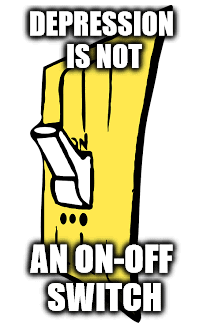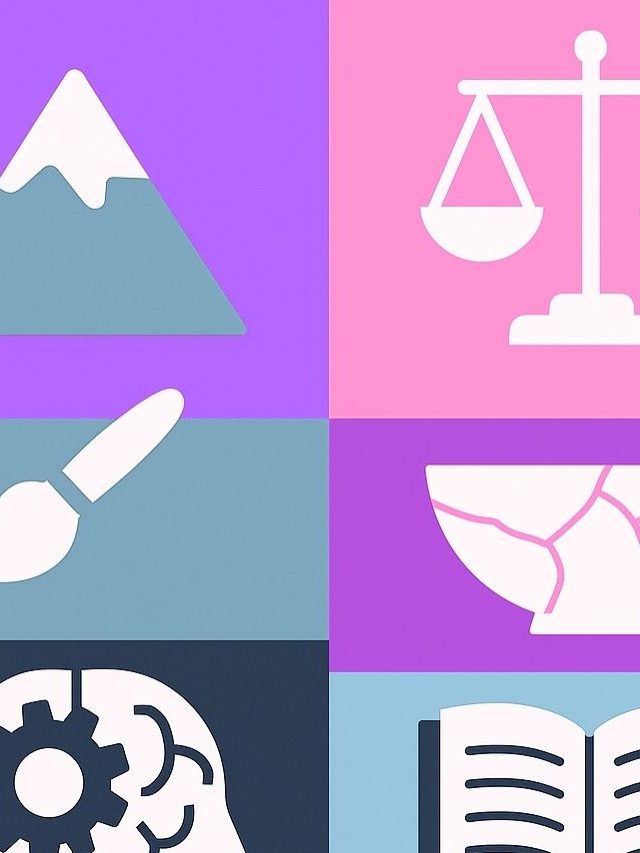Lots of people around us could be depressed or suicidal. We often never know because there is a communication barrier. It’s not easy figuring out what to say when someone tells you about their depression and thoughts of ending their life.
Thinking of the right things to say to someone who is depressed or suicidal is very tricky. For starters, most people are afraid to say something useful because they fear to make it worse.
What would you say if I come to you and tell you that ‘I want to sleep and never wake up’ or ‘I don’t feel like getting out of bed’ or ‘I want to just end my life and be done with it’. Or maybe the more obvious statement ‘I am depressed’.
What is Depression?
It is mood disorder that persists for at least a few weeks and is characterized by lack of pleasure experiences, poor arousal, lack of interest in things that once interested you, and poor motivation. There is often a serious drop in self-esteem and self-worth. Patterns of thinking about the world are altered and the person is biased toward a negative appraisal of the self, the world, and experiences. Most importantly, these changes disrupt normal functioning of the person in at least a few facets of life – self-time, social, occupation, relationships, hobbies, etc.
Depending on the severity of depression, there may be thoughts about committing suicide (suicide ideation) or failed attempts at it.
The 2 major kinds of depression
- Dysthemia: A long-lasting pervasive state of depression which may last for a few years
- Major depressive disorder: A relatively short episode of depression
It’s beyond the scope of this article to discuss these ‘mood disorders’ at length. So if you’d like to know more, check out this article[1].
When can you diagnose someone with clinical depression?
Criteria for Major Depressive Disorder (MDD)
- Depressed mood or a loss of interest or pleasure in daily activities for more than two weeks.
- Mood represents a change from the person’s baseline.
- Impaired function: social, occupational, educational.
- Specific symptoms, at least 5 of these 9, present nearly every day:
- Depressed mood or irritable most of the day, nearly every day, as indicated by either subjective report (e.g., feels sad or empty) or observation made by others (e.g., appears tearful).
- Decreased interest or pleasure in most activities
- Significant weight change (5%) or change in appetite
- Change in sleep: Insomnia or hypersomnia
- Change in activity: Psycho-motor agitation (restlessness) or retardation
- Fatigue or loss of energy
- Guilt/worthlessness: Feelings of worthlessness or excessive or inappropriate guilt
- Concentration: diminished ability to think or concentrate, or more indecisiveness
- Suicidality: Thoughts of death or suicide, or has a suicide plan
Now we’ve painted a fairly clear picture of what depression looks like. Let’s get to the talking bit.
Here are examples of sentences people use while talking with people while they speak of their depression or know that said person is depressed.
Let’s go through a bunch of DO NOTs first and then in the next post, some DOs.
15 Things You Should Not Say To Depressed Individuals (& reasons why):
1. Don’t be sad.
Why? Depression is not sadness and you can’t turn off the ‘sad’ switch.
2. It’ll pass. This is just a phase.
Why? Depression isn’t just a phase that passes. It changes one’s response to everything – thoughts, emotions, the environment, people. It changes their physical state. It sometimes kills their arousal and then, they enter a feedback loop that just makes it worse with each passing day, without realizing it. Coming out of depression needs mental work. One has to learn to overcome depression. It needs deliberate action.
3. Smile, be happy.
Why? Once again, sadness or happiness isn’t just a switch.
4. We’ll go have fun. It’ll cheer you up.
Why? Cheering up elevates one’s general current mood. Depression goes far deeper than just putting someone in a bad/sad mood. Because depression changes how people think and perceive information from the world (and within their mind), they often do not experience the fun they used to. I’d stress on the fact that they often do not experience or perceive the ‘fun’ associated with doing things they used to enjoy.
5. Don’t go to a therapist, they’ll just put you on pills.
Why? Firstly, ‘don’t go to a therapist’ is just bad advice. It is hard enough, today, to realize one needs professional help. Sometimes pills are needed to modulate the activity of some neurochemicals, this helps the brain regain an expected biochemical state. Secondly, professional help can be psychotherapy where the professional talks and works out a way, in collaboration with the patient, to overcome depression in a systematic and scientifically valid way.
6. Do ___, do ___, do ___, etc. and you’ll be happy.
Why? Nope. Aimlessly doing something is as useless as a feather used as a paperweight. There are some activities a depressed person can do to improve their overall status. Such as Yoga, Cardio, learning new skills, etc. But it is imperative that one does these activities strategically and integrates these activities with their life. Read about strategic activities one can do to create a life conducive to happiness here. Overcoming depression is a constructive process.
7. Don’t be depressed.
Why? This doesn’t help, even if it is what everyone wants. Depression isn’t a lifestyle choice or it isn’t an option one can choose. It certainly can’t be given up by choice.
8. Stop feeling sorry for yourself.
Why? While feeling sorry for yourself is commonly-expressed-idea by many people suffering from mood disorders. It’s not the best thing to say. Perhaps, through conversation, you can navigate the person’s feelings and understand why the person feels that way. Depressed individuals have negative thought patterns that make them select information that is negative and ignore the positive information. Some might end up highlighting negative aspects of conversations/experiences they have and think they are unworthy of good things. This reinforces feeling sorry and thus, in their eyes, becomes evidence for why feeling sorry is justified.
9. Why are you always like “I’m sad, I’m depressed”. Why is it always about you?
Why?It may be frustrating to talk with someone who is depressed because of a number of reasons like not knowing what to say (this article should solve that problem). People try to reach out to their friends and people often miss that. So it might appear that they are focusing on themselves in a narcissistic or attention seeking way. But that is more often false than true. It’s best not to shun the person while reaching out. One should be willing to talk in an accepting way or tell the depressed person that there are professionals who can help. Or, just listen without giving advice. It helps.
10. It’s all in your mind.
Why? It simply isn’t. Depression becomes a part of their being. The thinking of depressed people is very different from those who are not depressed. There is a biological component, a mental component, a social component; to name a few. It isn’t IN the mind in the sense it can be ‘removed’; it has become A PART of the mind. Changing the way a depressed person thinks can help treat depression but it has to be done in a systematic way. For example, using cognitive behaviour therapies[3].
11. Insert wisecrack remarks.
Why? One might think they can lighten the mood or make the air around less serious. But, it might devalue the person’s feelings or even make them feel insignificant. And thus, instantly close the doors for further communication. That isn’t good on any level.
12. Snap out of it/Get over it.
Why? By now, I’ve stressed on this enough. One can’t snap out of depression because it isn’t a thought or a single emotion. There is no on/off switch. One possible can’t get over. You get over break-ups, or a bad exam score. Dysthemia and the Major depressive disorder is a mental and physical state a person experiences over a period of time that affects many aspects of life.

Depression doesn’t have an ON-OFF switch
13. I know what you are going through, I feel/have felt the same.
Why? This is tricky. It’s not a bad thing to say. But, be careful. Depression doesn’t manifest the same way for everyone. Moreover, people reactions to the world and their inner thoughts and feelings can be very subjective and hard to explain. Don’t say this if you haven’t actually been depressed or can provide useful insight and or can articulate your thoughts in a relatable way.
14. Just forget about being depressed.
Why? It isn’t a simple memory or a small event that you can overlook and not pay attention to. Depression becomes a part of one’s brain, mind, and life. It can’t be forgotten. It needs to be converted into a satisfactory life. The mind, brain, and life need some level of restructuring to convert depression into a normal life.
15. It’s ok, not a big deal, it’ll go.
Why? This causes a lot of damage. Calling someone’s serious suffering ‘not a big deal’ further crushes their self-esteem and self-worth. Also, depression doesn’t just go away. It needs work. And, it is a big deal. Big enough to warrant professional attention and a treatment plan.
Bonus point: Do not give unnecessary and useless advice out of anecdotes.
In my next article, I’ll cover 30 things you should say when someone is depressed and how you can create a positive effect on them.
So are you confident about what to not say to your depressed friend? Go ahead, they would really appreciate it!
Sources
[2]: https://www.healthyplace.com/depression/major-depression/mdd-dsm-criteria-for-major-depressive-disorder/
[3]: http://www.webmd.com/depression/guide/cognitive-behavioral-therapy-for-depression#1

Hey! Thank you for reading; hope you enjoyed the article. I run Cognition Today to capture some of the most fascinating mechanisms that guide our lives. My content here is referenced and featured in NY Times, Forbes, CNET, and Entrepreneur, and many other books & research papers.
I’m am a psychology SME consultant in EdTech with a focus on AI cognition and Behavioral Engineering. I’m affiliated to myelin, an EdTech company in India as well.
I’ve studied at NIMHANS Bangalore (positive psychology), Savitribai Phule Pune University (clinical psychology), Fergusson College (BA psych), and affiliated with IIM Ahmedabad (marketing psychology). I’m currently studying Korean at Seoul National University.
I’m based in Pune, India but living in Seoul, S. Korea. Love Sci-fi, horror media; Love rock, metal, synthwave, and K-pop music; can’t whistle; can play 2 guitars at a time.



























